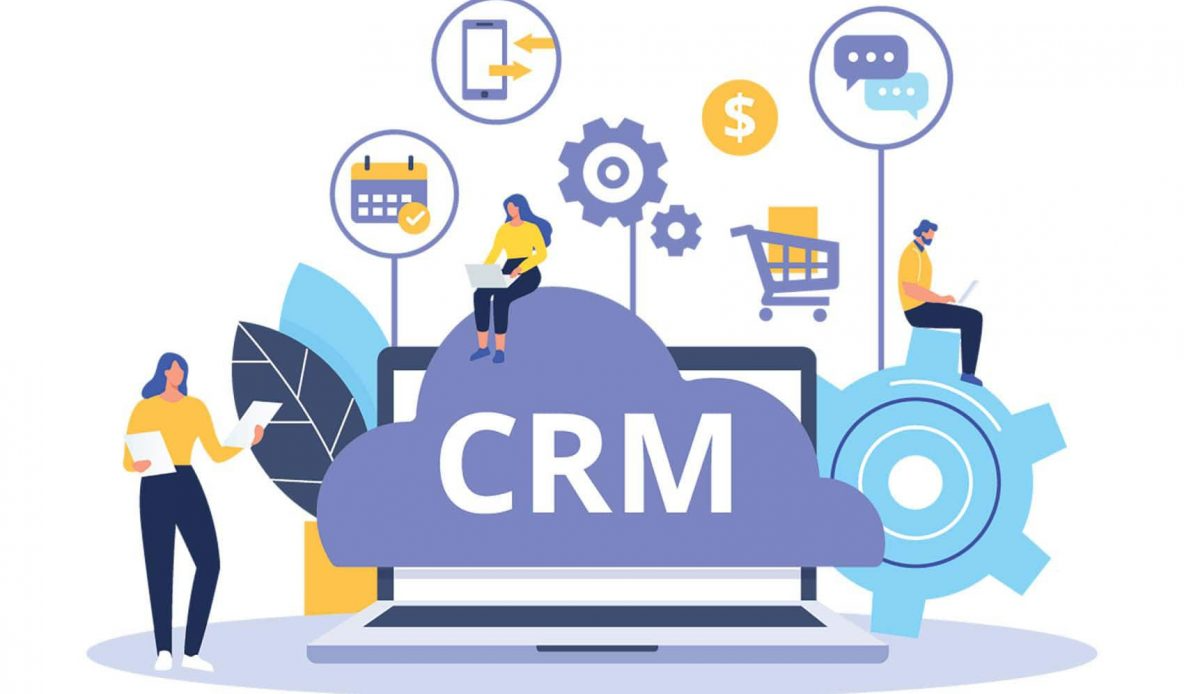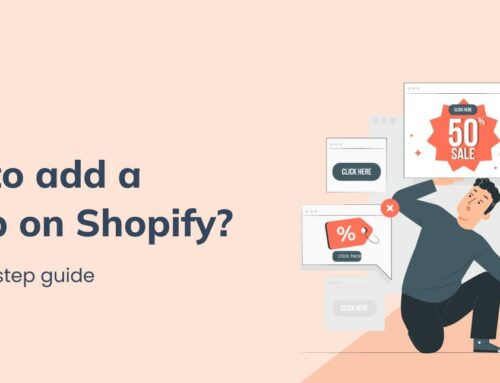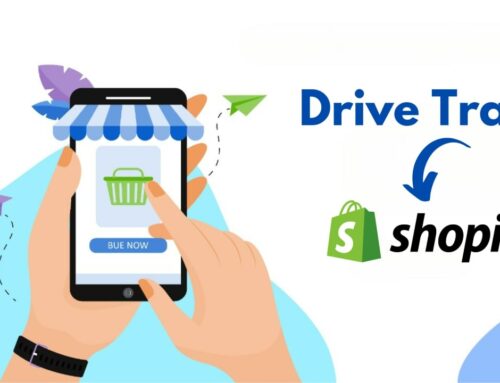More than 70% of customers in digital behaviors expect personalized experiences from businesses.
Meanwhile, it is acknowledged that companies delivering good customer communication will capture more than 40% more sales than their rivals. Thus, it is crucial to managing business transactions while improving the relationship with customers at the same time. A lack of a customer relationship management framework will lead to a messy service experience for customers on their terms.
To make the most out of your Shopify store, you need a modern customer communication platform that unifies every aspect of your customer journey. With first-class support of the Customer Relationship Management system (CRM), your Shopify store will eventually handle more sales, including conversion to engagement to support.
Finding the proper Shopify CRM Integration might be challenging, and if you don’t know what to look for, this post will help you get the best CRMs with all the features and functionalities you require.
Contents
What is Shopify CRM integration?
CRM is known as customer relationship management. As its name suggests, CRM is a tool dedicated to synchronizing, organizing and assisting businesses’ relationships with customers.
CRM software integrated with Shopify enables your service team to gather customers’ information in a single entry point and analyze your business operations and marketing activities performance.
The best CRMs come packed with high-tech solutions that help employees handle the contacts, anticipate needs, streamline your go-to-market strategy and bring in more sales. Specialized Shopify CRM software consolidates customers’ information from a diversity of resources, stocked it and administers it in a single CRM database. Every history of customers’ communications, including purchase records, contact information, and ongoing communications, will be stored in the system.
Implementing an on-premise CRM does not require technical expertise with just on-click integration through a direct Shopify app or carrying out a little code and integration steps.
Do you need Shopify CRM integration?
In recent years, Shopify CRM integration has proved its rising popularity and affected companies’ growth. A robust Shopify CRM system integrated with your store enables you to easily view all customer critical data and information, directly influencing the sales, revenue, and growth of your Shopify store. In the cosmopolitan business environment, every B2B transaction should integrate CRM. The software can give an overall picture of the sales process, from lead qualification to deal closure. CRM integration is unlikely to be advantageous for every business, particularly B2B companies. The following are the most prevalent advantages it can provide for companies:
- Improved possibilities for cross-selling: As mentioned earlier, a CRM helps streamline services and manage customers’ behavior for analysis and processes.
That being said, it enables you to generate personalized marketing campaigns to enhance customer engagement and cross-selling opportunities.
Read more Best 50+ Shopify Apps To Increase Sales to find cross-selling apps .
- Enhance customer relationships: The best CRMs ensure your business understands your customers to anticipate their needs and expectations. Based on their past purchasing record, you can create a comprehensive customer portfolio and generate personalized marketing campaigns. This helps form a strong bond relationship and consolidate a loyal customer base.
- Improved efficiency: The surest way to improve the overall efficiency of your team is to give CRM access. It would be easy for your support team to track and monitor your store’s transactions even though your customers order a product over the phone. Otherwise, having everything controlled in one system dramatically reduces unnecessary clutter and paperwork, automating your communication with the customers.
Top 5 Best Shopify CRM Integrations
Sooner or later, every business needs to adopt CRM software in any sales toolkit. Aware of their fundamentals to your business, the next step is to pick out the most practical CRM solutions to suit your company. Below is a list of the top-rated software solutions that will help you to empower your customer services.
Mailchimp
Becoming one of the world’s most popular Shopify CRM integrations, Mailchimp is engineered to boost sales. Guided by its Customer Journey Builder, Mailchimp’s email marketing tool sends relevant content based on customers’ actions and behavior. Moreover, based on your customer’s purchase history, Mailchimp allows you to create emails with personalized suggestions. It is well worth a look for any sized businesses needing seamless interfaces and high-level technical support.

Pros: Mailchimp was one of the first on the market and is super easy to use. The CRM does not require any technical skill for the setup. Perhaps, it is best known for creating audience segmentation to drive sales and send automated emails to prospective customers, such as monthly newsletters, order updates, bargain offers, etc.
Cons: The major drawback comes from its pricing model. The larger your subscribers, contacts and email are, the higher cost you will be paid.
Pricing: Mailchimp has a free plan and a great contacts capacity (2000). With a free plan, you still have free marketing and commerce tools. Depending on your type of activities, you can upgrade your subscription plan starting from $11 per month.
HubSpot CRM
Since 2018, HubSpot has provided dedicated CRM Shopify Software, considered one of the best CRM Shopify Integrations. HubSpot CRM allows users to develop customized processes corresponding to your Shopify client data orders. It makes use of setting up your product workflow pipelines. Also, it is much easier to unleash the full capabilities of HubSpot to simplify the management of sale processes, including email tracking, real-time emails, lead generation, ad management, etc.
HubSpot’s CRM Shopify integration makes data sync between your online storefront and the CRM dashboard easier. It lets users create customized workflows that correlate with your Shopify customer data. So whether you’re juggling strategies or services, Hubspot can help you scale your company while at the same time not adding extra complexity. Along with streamlining your business process, HubSpot covers all the features required to maintain and nurture customer relationships.

Pros: HubSpot is worth considering when having the ability to manage all sales and marketing procedures in one central place. With HubSpot, it is possible to connect all your tools and identify potential customers. In addition, HubSpot includes many beneficial features that can be leveraged in your Shopify store.
Cons: Regarding pricing, HubSpot is not always a favorite choice for some Shopify store owners as it might be high-priced.
Pricing: HubSpot does offer a free plan forever; however, some of the high-end features, such as email marketing analytics, are restricted. Depending on your business demand, a paid plan is available from $20 to $120 monthly.
Sendinblue
Founded in 2012, Sendinblue is probably the youngest CRM software on the list. Even though the newest, Sendinblue, has deservedly seized its position in the league of the best Shopify CRM integration. Undoubtedly, Sendinblue is an easy-to-use and robust CRM system. The platform offers a suite of tools of a drag-and-drop editor, pop-up optimization, conversion tracking and e-commerce platform supported such as e-commerce platforms and support with a broad range of business and marketing tools like Stripe, SumoMe, and Facebook Ads. Another popular feature is customer behavior tracking, which can help you fine-tune your marketing and sales efforts.

Pros: When compared to other tools, Sendinblue is the easiest one. The user interface is easy to grasp and lets you identify all the critical areas of the tool pretty quickly. You get the main menu at the top – directing you to your campaigns, automation, transactional email, and contact management.
Cons: Although it offers a free plan, the CRM only allows you to send 300 emails daily, which likely has limitations to outreach to the customers. Otherwise, the automation feature still is far from Mailchimp.
Pricing: Sendinblue has a nicely-featured free plan, which is excellent for small businesses that want to expand their contact base while nurturing potential leads with multichannel campaigns, including mix-email, site chat, and landing page.
Zendesk
Trusted by over 200,000 e-commerce users worldwide, including Uber and Airbnb, Zendesk is undoubtedly one of the most significant competitors to Salesforce. Zendesk comes loaded with various omnichannel communication tools like email, SMS, and dialer app for convenient customer engagement. Given a wide range of functionality, Zendesk enables your business to customize a FAQ or knowledge base, saving time with repetitive questions.
Perhaps Zendesk is likely ideal for larger businesses. Specifically, this CRM solution enables users to build an online community to help executives of expanding organizations by creating questionnaires. It is an excellent way to pertain customer communications and compile a piece of customer feedback related to product information, delivery, policy, etc.

Pros: The unique feature of Zendesk is the automated process that enables store owners to set up an extensive knowledge base/FAQ for repetitive queries. It helps reduce a lot of clutter and workload for the support team when the process is automated. Moreover, Zendesk allows Shopify store owners to create an online community for customer outreach and more impactful connections with customers.
Cons: It is likely a challenge for users when setting up Zendesk’s features, such as a knowledge base. Likewise, the price can be high for businesses, including many users and agents.
Pricing: The Enterprise package for Zendesk starts at $125 per month and is integrated with Al-powered predictions and custom reporting.
Zoho
For Shopify CRM Integration like Zoho, the CRM offers an entire CRM system with over 40 apps for Shopify users. Zoho is a robust tool on its own with a wide range of sales signaling, email marketing automation, multi-user portals and inventory management. Shopify integration with Zoho provides businesses with a unified reporting framework, interactive insights and two-way data synchronization. Besides, Zoho is best known for providing some fantastic customizable online forms to generate leads over multiple eCommerce platforms.
Zoho CRM’s Zia – AI-powered sales assistant makes it stand out from other competitors. Perhaps the most valuable feature of Zia is identifying the ideal time to reach out to your leads and an automatic reminder of any tasks over the deadline you created.
Zoho features a self-serve portal and Zia-Al powered to assist in predicting potential customers and making more profit.

Pros: If your business wants to communicate with customers directly on social media platforms, Zoho has the way for you. Integrating Zoho with your Shopify store can monitor customers’ feedback, add social media leads and manage the brand’s image. For companies that want to emphasize social media marketing, Zoho CRM is regarded as the best suited.
Cons: Lacking advanced features to automate the process and analytic functionalities make Zoho CRM less competitive when compared to Salesforce and Zendesk.
Pricing: Using Zoho CRM, you will have a free limited version and a free trial. The paid plan starts from $12 per month, it has been considered a great CRM software with a competitive price.
What Is The Best Shopify CRM Integration For Your Website?
Each of the above Shopify CRM integrations has certain advantages and disadvantages. When it comes to ease of use and setup for beginners, Mailchimp or Sendinblue are top contenders. On the other hand, Hubspot CRM is a perfect choice if you want a more in-depth system.
Ideally, it would help if you had a team willing to assist you in integrating CRM systems. That’s when BSS Commerce comes into play. Specifically, BSS supports integrating your online store with third-party systems such as ERP, CRM, marketplaces, payment gateways, etc.
Besides empowering your e-commerce business and aiding with operations management, BSS Commerce remains the most robust and economical development service for staying in touch and organizing your interactions properly. BSS also assists in growing your business, so if you are serious about eCommerce, BSS Commerce is strongly recommended as the best 3rd-party integration service.
>>> Contact BSS Commerce now for more details!
Conclusion
The ultimate goal of Shopify CRM integration is to create the best possible experience and enhance long-term relationships with your customers. Aligning your CRM strategy is essential for your marketing strategy. We hope you can choose the best Shopify CRM system that will help you enhance customer experience and expand your business.





